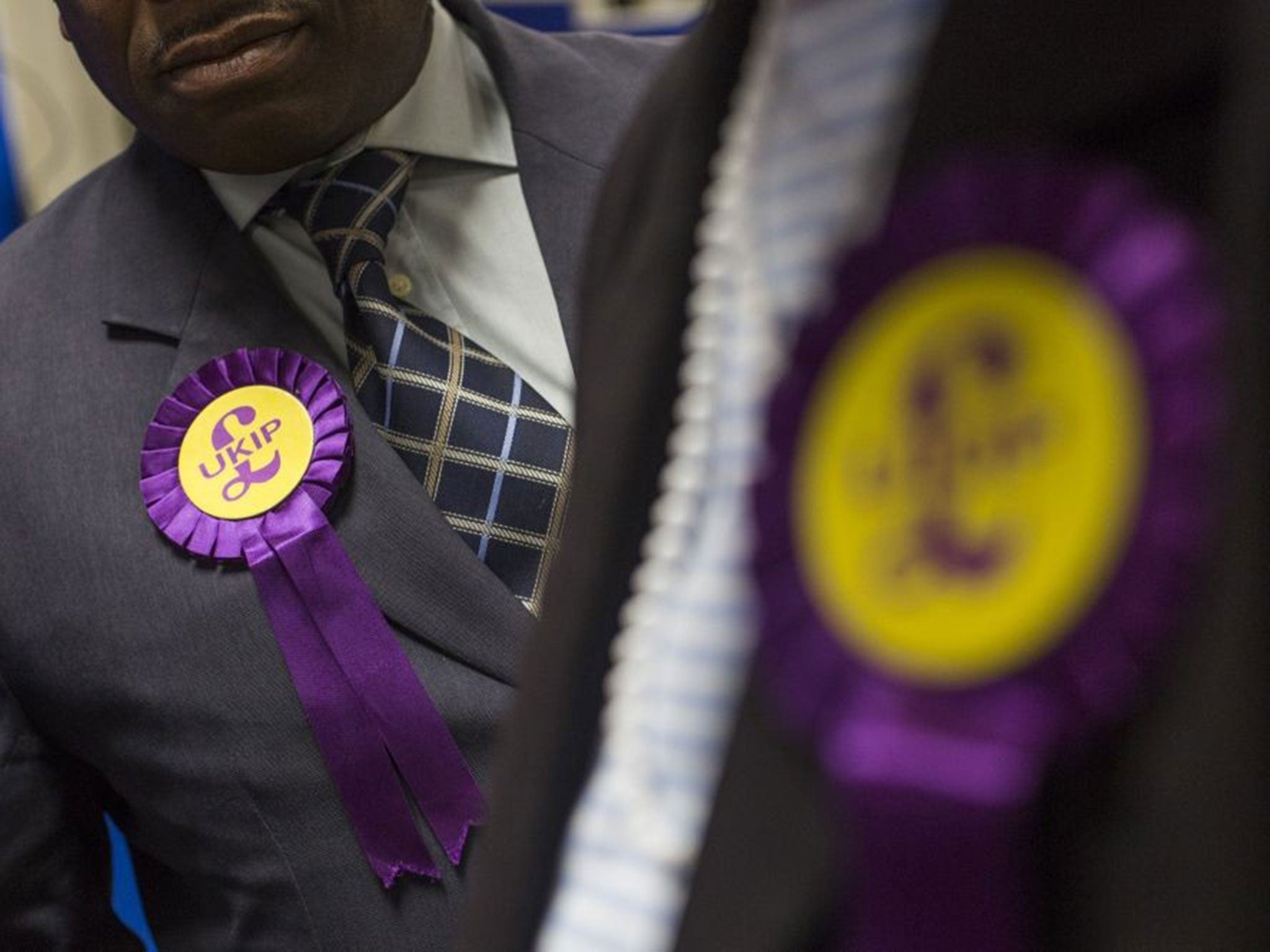Local elections 2014: Ukip makes major gains as Labour takes Tory flagship Hammersmith and Fulham
Results from southern councils suggest Essex is increasingly voting for Ukip, with Basildon gains pushing the council to no overall control

Your support helps us to tell the story
From reproductive rights to climate change to Big Tech, The Independent is on the ground when the story is developing. Whether it's investigating the financials of Elon Musk's pro-Trump PAC or producing our latest documentary, 'The A Word', which shines a light on the American women fighting for reproductive rights, we know how important it is to parse out the facts from the messaging.
At such a critical moment in US history, we need reporters on the ground. Your donation allows us to keep sending journalists to speak to both sides of the story.
The Independent is trusted by Americans across the entire political spectrum. And unlike many other quality news outlets, we choose not to lock Americans out of our reporting and analysis with paywalls. We believe quality journalism should be available to everyone, paid for by those who can afford it.
Your support makes all the difference.The Tories and Labour alike were reeling today from a series of defeats at the hands of Ukip in early results from the local council elections.
Nigel Farage’s party shrugged off a campaign blighted by revelations about some of its candidates to pick up a succession of seats in Conservative and Labour heartlands.
With just one-third of the local election results declared, it had already exceeded its target of making 80 gains.
Labour’s disappointment was tempered by a strong performance in London, where it captured Hammersmith and Fulham, a flagship Tory authority, as well as Merton.
Ukip was winning around one-quarter of the vote in wards where it stood, although its backing was only around ten per cent in the capital.
It scored stunning successes in Essex, gaining 11 seats in Basildon to end Tory control of its town hall, which had been a Labour target, and made steady gains in the nearby councils of Castle Point and Southend of Sea.
It also had a decisive impact in Thurrock by picking up five council seats and depriving Labour of overall control. The result was a particular setback for Ed Miliband as the parliamentary constituency in the Essex town is a key target for Labour at next year’s general election.
Across the Thames estuary, the Conservatives were ousted from control of Maidstone in Kent following four Ukip gains.
There was bad news as well for the Liberal Democrats who lost control of Portsmouth after Ukip gained six seats on the council.
This morning, David Cameron admitted the Tories would need to show they have "answers" on issues such as immigration and welfare reform, after conceding the public were "frustrated" with the political establishment's failure to address their concerns.
Ed Miliband however put the results down to a "deep sense of discontent with the way the country is run" and said votes for Ukip "are an expression of this discontent" and a desire for change.
Ukip also polled strongly in the South Yorkshire authority of Rotherham, once a Labour stronghold, where it won ten seats. The Ukip surge also thwarted Labour’s hopes of winning Swindon, where the Conservatives increased their majority, or Tamworth.
Labour was drawing some comfort from its strong showing in London and the capture of Cambridge for the first time in nearly 20 years. However, it appeared only to have achieved a swing of around three per cent, short of the shift it needs to propel Mr Miliband into Downing Street at next year’s general election.
Tory support was falling by around seven per cent, although the party argued there was everything to play for next year because of the relatively anaemic backing for Labour. It was relieved to fend off Labour in Swindon and Peterborough.
The collapse in the Lib Dems’ local government base since 2010 continued, with its support down by about 13 per cent. They lost control of Kingston-upon-Thames, the home patch of Cabinet minister Ed Davey, to the Conservatives but increased their majority over their Coalition partners in nearby Sutton.
Mr Farage predicted his party would make 200 gains in the elections. He said: “There are areas of the country where now we have got an imprint in local government. Under the first-past-the-post system we are serious players.“
Ukip is also expected to make huge gains in the results of elections to the European Parliament, which will be announced on Sunday.
Labour sources had indicated that the party might win 200 seats on a good night, but senior MP Emily Thornberry said she expected the figure to be "around 150".
A senior Labour source acknowledged that Ukip's rise had "some impact" on Ed Miliband's party but claimed it was "looking as though there has been a big Tory/Lib Dem collapse".
But there was criticism of Labour’s performance from Eurosceptic MP Graham Stringer, who told the BBC: ”We have not done as well as we should have done in both the presentation of our policies and the organisation of the campaign."
Labour former minister David Lammy said he would have liked to see the party make gains in places such as Swindon.
He claimed voters had been "swallowing" Ukip's message on immigration and Europe.
Mr Lammy told Sky News: “There's no doubt about it, Ukip are biting into parts of Labour's working-class vote.”
But Tory MPs Douglas Carswell, Jacob Rees-Mogg and Peter Bone called for the Conservatives and Ukip to work together in 2015 to ensure a referendum on Europe.
Mr Rees-Mogg told the BBC: "In a first-past-the-post system, if they don't get those votes into one pot, then both those sides end up losing."
Join our commenting forum
Join thought-provoking conversations, follow other Independent readers and see their replies
Comments